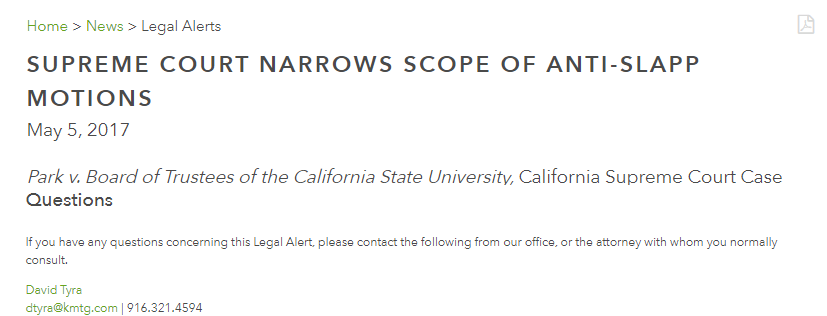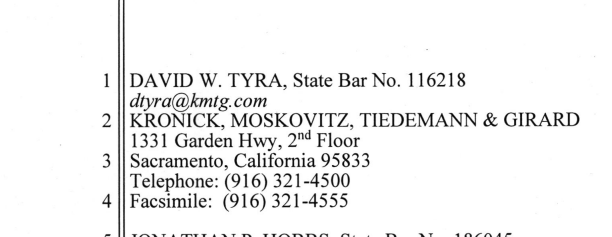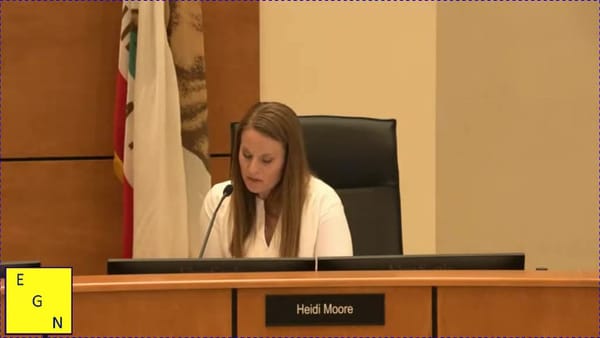Kronick Moskovitz attorney defending Elk Grove wrote anti-SLAPP to strike unlikely to succeed

Are Elk Grove taxpayers getting screwed by the city’s highly-compensated and underworked legal staff?
If there is one thing certain about Elk Grove’s city attorney’s office, even though it is well-staffed and highly paid, much of its legal work is performed by the Sacramento-based law firm Kronick Moskovitz. Not coincidentally, the city’s attorney, Jonathan Hobbs, was once a partner with the white shoe law firm.
One of these legal conflicts the city is involved in is the case of the owner and family of the euthanized dog known as Zeus. The family has sought relief against the city in federal and state courts, and for much of this work, Elk Grove has relied on Kornick Moskovitz attorney David Tyra.
“Elk Grove Municipal Code § 8.060.070 violates the due process requirements of the U.S. Constitution”
Judge Richard K. Sueyoshi
When a tentative ruling was issued yesterday in Sacramento Superior Court, it was curious that city attorney Hobbs, and not Tyra, had filed a so-called anti-SLAPP motion in the case Ghesal Kabir vs. City of Elk Grove 2022-00327633-CU-PO. Hobbs, who used the legal maneuver to dismiss the case, failed.
Although Judge Richard K. Sueyoshi seemed to scold the plaintiff’s attorney in the five-page ruling, he denied Hobbs’ motion. The ruling said, “Elk Grove Municipal Code § 8.060.070 violates the due process requirements of the U.S. Constitution,” and therefore, the anti-SLAPP motion to dismiss was denied.
As noted in yesterday’s story on the ruling, in matters like this, the city historically relies on Kronick Moskovitz to carry its water. But in this case, curiously, Hobbs filed the motion.
Why?
There is no definitive answer to that question. However, Tyra himself may have explained why Hobbs filed this motion in hopes of killing this lawsuit.
In a May 5, 2017, legal alert on Kronick Moskovitz’s website, Tyra posted a story headlined, “Supreme Court narrows scope of anti-SLAPP motions.” The case involved California State University professor Sungho Park who sued the system, alleging discrimination in denying him tenure.
While the details of the CSU and Zeus’ cases vary, they share one crucial similarity. In both cases, the defendant – powerful government agencies – filed anti-SLAPP dismissal motions.
Tyra wrote, “the use of anti-SLAPP motions to strike had become an increasingly popular tactic for responding to discrimination suits.” With the 2017 California Supreme Court ruling, Tyra added, “The decision in Park now makes the potential for successful use of anti-SLAPP motions to strike in discrimination suits unlikely.”
Given the court’s ruling in a discrimination case, the precedent would likely apply to a party who has been, or claims to have been, denied due process under the U.S. Constitution.
We will never know what transpired between Hobbs and Tyra, but it would not be surprising to learn that the Kronick Moskovitz attorney declined to file a motion knowing it was a loser. But, of course, Kronick Moskovitz would still capture scores of billable hours, so all would not be lost for the firm.
Conversely, even if Tyra and not Hobbs had filed the motion to dismiss, shouldn’t he heed his own legal opinion? Or are the billable hours just that alluring?
Still, this makes you wonder, are Elk Grove taxpayers getting screwed by the city’s highly-compensated and underworked legal staff who file motions that precedents show are losers? Just what are they hiding?




